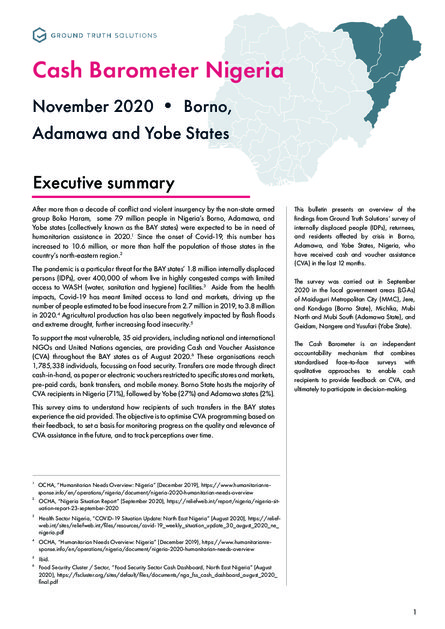
After more than a decade of conflict and violent insurgency by the non-state armed group Boko Haram, some 7.9 million people in Nigeria’s Borno, Adamawa, and Yobe states (collectively known as the BAY states) were expected to be in need of humanitarian assistance in 2020. Since the onset of Covid-19, this number has increased to 10.6 million, or more than half the population of those states in the country’s north-eastern region.
The pandemic is a particular threat for the BAY states’ 1.8 million internally displaced persons (IDPs), over 400,000 of whom live in highly congested camps with limited access to WASH (water, sanitation and hygiene) facilities. Aside from the health impacts, Covid-19 has meant limited access to land and markets, driving up the number of people estimated to be food insecure from 2.7 million in 2019, to 3.8 million in 2020. Agricultural production has also been negatively impacted by flash floods and extreme drought, further increasing food insecurity.
To support the most vulnerable, 35 aid providers, including national and international NGOs and United Nations agencies, are providing Cash and Voucher Assistance (CVA) throughout the BAY states as of August 2020. These organisations reach 1,785,338 individuals, focussing on food security. Transfers are made through direct cash-in-hand, as paper or electronic vouchers restricted to specific stores and markets, pre-paid cards, bank transfers, and mobile money. Borno State hosts the majority of CVA recipients in Nigeria (71%), followed by Yobe (27%) and Adamawa states (2%).
This survey aims to understand how recipients of such transfers in the BAY states experience the aid provided. The objective is to optimise CVA programming based on their feedback, to set a basis for monitoring progress on the quality and relevance of CVA assistance in the future, and to track perceptions over time.